How Does Iodine Help In Hair Growth?
Tips and ways to use the element for strengthening the roots and preventing hair loss
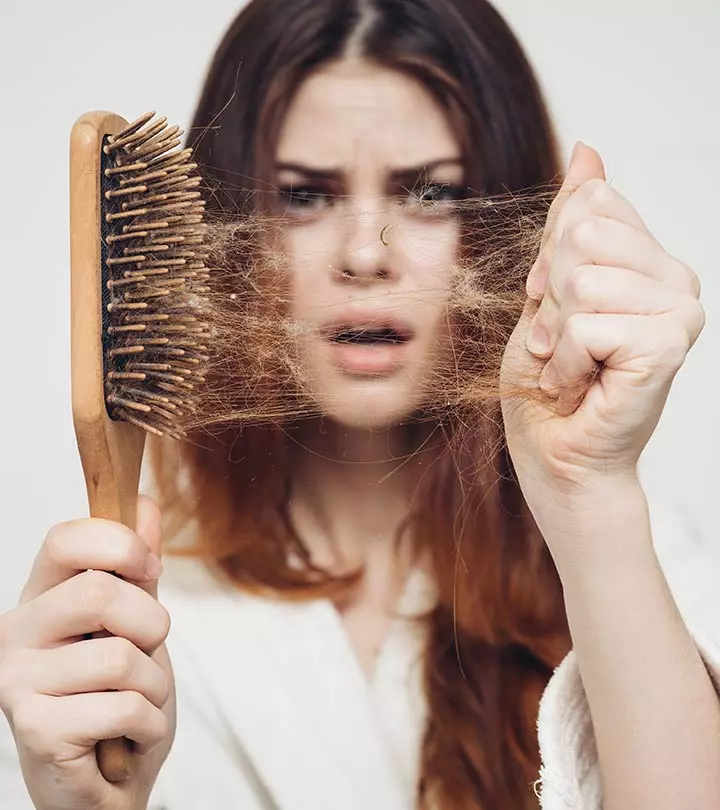
Image: Shutterstock
It is not just a salt that adds some taste to food, but iodine for hair growth can be a potent remedy. Yes, if you notice erratic hair fall, it may be due to iodine deficiency. Therefore, a good dose of this essential mineral can help your hair grow.

Sufficient iodine intake in your diet can help prevent hair loss and stimulate hair growth. Hence, you should consume foods rich in iodine. This article discusses the benefits of iodine for hair growth, hair loss symptoms due to its deficiency, how to use it, and some tips for using iodine for hair. Keep reading!
In a survey conducted on 1,400 participants including 1000 school children, 300 pregnant women, and 100 lactating women, it was found that 9.4% children, 8% pregnant women, and 18% of lactating women have iodine deficiency. So iodine deficiency is a serious condition which can cause hair loss, hence it is important to fulfill the daily requirement of iodine to prevent hair loss.
In This Article
What Is Iodine?
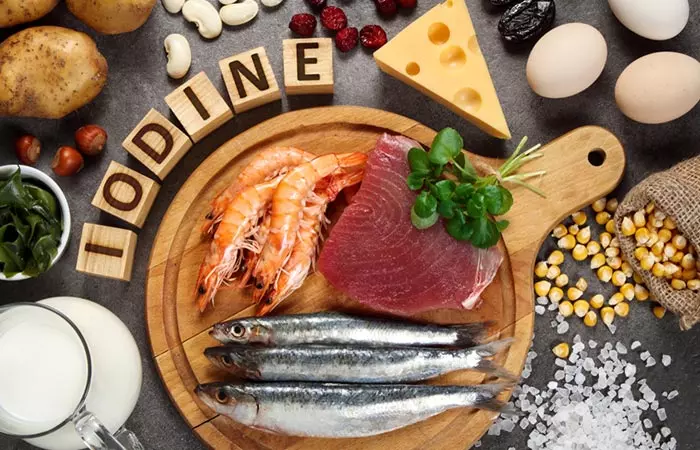
Iodine is known to have multiple benefits for hair. It is considered an age-old antioxidant that can boost collagen production, hair protein synthesis, and blood circulation in the scalp. Sufficient iodine intake in your diet can help prevent hair loss and stimulate hair growth. Hence, you should consume foods rich in iodine. This article discusses the benefits of iodine for hair growth, hair loss symptoms due to its deficiency, how to use it, and some tips for using iodine for hair. Keep reading!
In the following section, we will explore the benefits of iodine for hair growth.
Key Takeaways
- Iodine may help prevent several scalp infections as it has antifungal properties.
- Iodine may help improve thyroid hormone production, which is linked with hair growth.
- Iodine deficiency may lead to dry hair and premature graying.
- The intake of iodine-rich foods and topical application of it may help improve hair growth.
Benefits Of Iodine For Hair Growth
This may surprise you, but the functioning of your thyroid has a significant effect on your hair. This is because the thyroid gland uses iodine to produce hormones such as thyroxine and triiodothyronine that dictate the rate of your hair growth (1). Therefore, any thyroid disorder caused by an iodine deficiency can lead to dry and rough hair. This is one of the most common causes of hair loss among women.
Severe hypothyroidism (low thyroid hormone levels) can cause loss of hair. This condition is linked to telogen effluvium, a hair shedding disorder that leads to non-permanent diffuse hair loss (2). But, this condition has also been linked to female pattern hair loss or female androgenic alopecia (AGA) (3).
Iodine has some excellent antibacterial, antiviral, and antifungal properties (4). It can fight any infections of the scalp that may cause hair fall as well as aid hair follicle nourishment to promote healthy hair growth.
Iodine combats a variety of hair problems like brittle hair and hair fall (5). Also, anecdotal evidence suggests that iodine helps combat premature graying and strengthens your strands from the roots, thus enhancing hair thickness.
Sheby Red, a Youtuber, shared her experience of using iodine supplements to clear her hormonal acne issues. She mentions that she’s been dealing with acne since she was 12 years old and had really bad period cramps. She also used to feel very fatigued and dealt with brain fog. She used iodine and noticed positive improvements. She says, “Fast forward to today, I now struggle with no, absolutely no, period issues. I struggle with no acne. I get an occasional pimple here and there, but my skin is clear, it’s radiant, it’s hydrated (i).”
Iodine deficiency has some specific signs and symptoms. Let’s take a look at them.
Symptoms Of Hair Loss Due To Iodine Deficiency
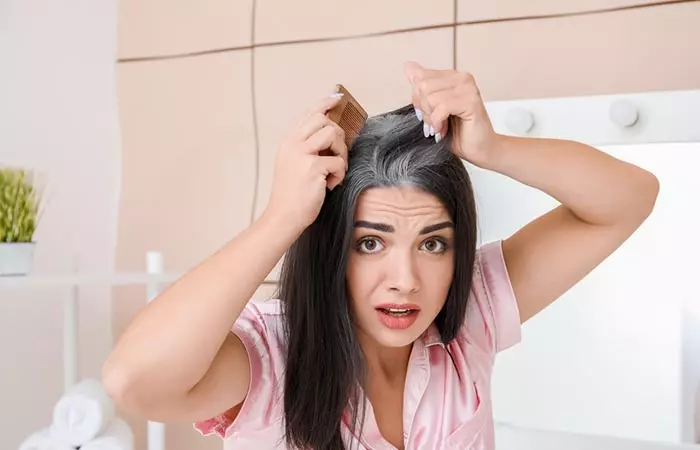
Since iodine plays such a huge role in maintaining the health of your hair, its deficiency will have some detrimental effect on your hair. Hair loss or balding is a common symptom of a thyroid imbalance.
Here are a few hair-related symptoms that could be caused by a shortage of iodine in your body.
- Reduction in hair volume and consequent thinning of hair
- Hair starts getting coarser
- Premature graying
- Changes in hair texture such as dryness, brittleness, or coarseness
- The appearance of bald spots in areas that used to be covered with hair
Along with these hair-related symptoms, there are some other hypothyroid symptoms you might experience that could confirm that you have an iodine deficiency. These include extreme weight gain, dry skin due to decreased sebum production, muscle pain, dizziness, fatigue, excessive sweating, constipation, rapid heartbeat, swelling of wrists and ankles, reduced sleep (insomnia), heightened cholesterol levels, anxiety and panic attacks, and goiter.
Surely, these are some pretty serious symptoms and bound to cause more than a little discomfort. Let’s see how it affects hair growth in the following section.
How Iodine Deficiency Affects Hair Growth?
Lack of sufficient iodine in your body can impact the overall health of hair.
Hypothyroidism due to low levels of iodine can cause dry and coarse hair, which, in turn, causes breakage and hair fall. High thyroid hormone levels can affect the strength of the roots, whereas low levels can cause premature graying of hair.
 Quick Tip
Quick TipYour next course of action needs to be to get some iodine in your diet and in your hair ASAP. Keep reading to see what you need to do next.
How To Use Iodine For Hair Growth
The quickest and most effective way to stop hair fall caused by iodine deficiency is to use white (decolorized) iodine. It has allegedly shown promising results in treating bald spots caused by alopecia. Another way it is claimed to combat hair fall is by attacking any fungal infection that could be feeding on your hair follicles and weakening your hair. So, here’s a simple way to use it.
1. Topical Application Of Iodine
What You Need
- White iodine (It comes in a bottle in liquid form and is easily available in drugstores)
Process
- Wash your hair as usual and let it air-dry.
- Once your hair and scalp are completely dry, apply some white iodine on the areas that are experiencing hair loss.
- Gently massage it into your scalp to ensure maximum absorption.
- If using white iodine directly on your scalp causes irritation, dilute it in a couple of tablespoons of water before applying it.
- Repeat this application every day to see effective results. You can also apply white iodine twice a day on areas that have too much hair loss.
Can You Put Iodine On Your Scalp?
When applied topically on areas that are experiencing hair loss, iodine can get absorbed into your scalp and enter your bloodstream to boost hair growth (6)
2. Iodine-Rich Foods
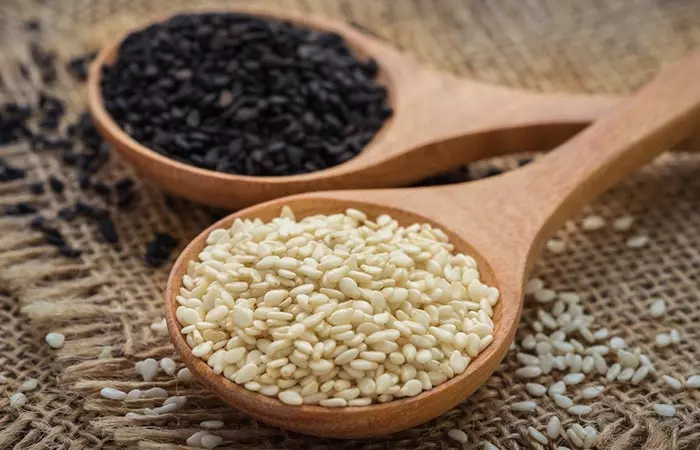
Though white iodine can aid hair loss prevention and growth to an extent, you still need to address the iodine deficiency in your body to fully solve your hair troubles. The only way to do that is by adding iodine to your diet. Here are a few iodine-rich foods that you can start eating!
- Iodized Salt: Iodized salt (make sure that it explicitly says ‘iodized salt’ on the packaging) is the most convenient source of sodium and iodine that is essentially needed to prevent hair loss hypothyroidism (7).
- Sesame Seeds: Primarily, sesame seeds, which are among the top foods for hair growth, contain iodine that promotes hormonal balance in the thyroid gland and aids hair growth (8). These seeds are also rich in vitamins B1 and B6 and omega-3 fatty acids that are great for your hair and scalp health.
- Oysters And Shrimp: These shellfish are great sources of iodine as well as zinc. Oysters have the highest concentration of iodine (9).
- Codfish: Codfish and the oil derived from it contain high concentrations of iodine (9).
- Garlic: Not only is garlic a rich source of iodine, but it also contains sulfur and a host of other anti-inflammatory agents that boost hair growth (10).
- Dairy Products: You can get your daily allowance of iodine from dairy products like milk, cheese, and yogurt (11).
- Dried Seaweed: Dried seaweed like kelp, nori, and wakame are great sources of iodine (12).
Some other sources of iodine include corn, pineapple, navy and green beans, strawberries, cranberries, banana, prunes, turkey, Himalayan crystal salt, baked potato, rhubarb, tuna fish, and watercress.
These are some iodine-rich foods that you can take to deal with iodine deficiency. In the following section, we will look at its ideal dosage.
How Much Iodine Should You Take Per Day?
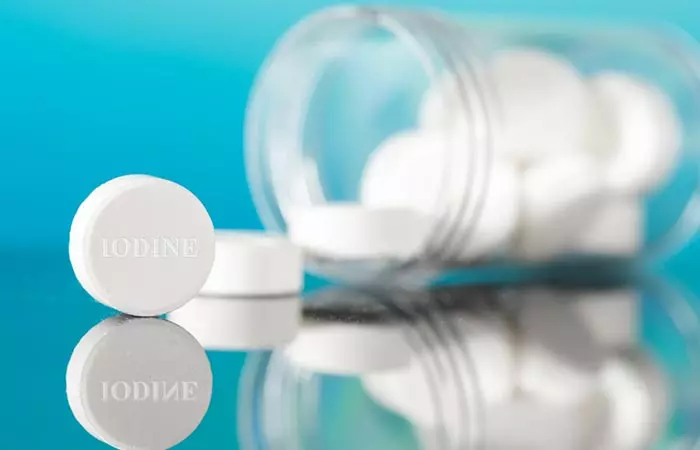
Just like several other supplements and nutrients for hair growth, the dose of iodine is highly dependent on the age, gender, and condition of the user. Doses of 150 mcg/day appear to be safe for most adults. Pregnant and nursing women require higher doses of iodine (13).
 Did You Know?
Did You Know?Check out the next section for some tips for using iodine for your hair.
Tips For Using Iodine For Hair
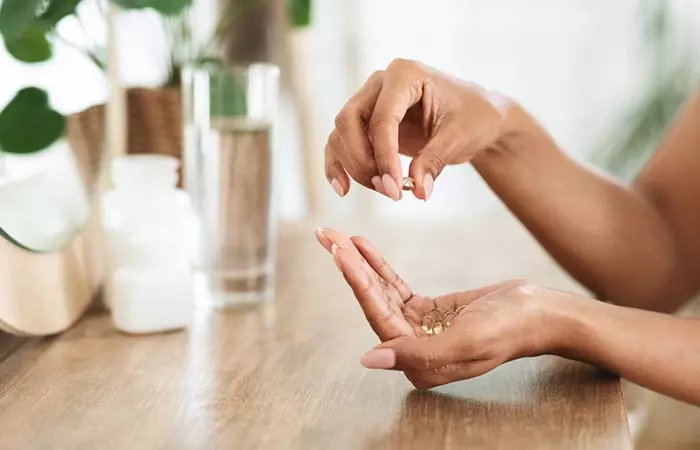
Though increasing your iodine intake may sound pretty easy, you still need to keep some things in mind to avoid running into more serious problems. Here are a few tips that you need to keep in mind!
- Check online or ask your physician to find out how much iodine you need to consume daily according to your age and weight. This is especially important because consuming too much iodine can cause hives, enlarged lymph nodes, and internal bleeding.
- Avoid getting on a low-calorie diet as it invariably leads to iodine deficiency and can cause thyroid problems.
- Try to buy organic and fresh fruits and vegetables as much as possible.
- Stay away from chemical treatments and take iodine supplements to get the recommended amount of iodine per day.
Infographic: How To Use Iodine To Enhance Hair Health
Hair loss is a common phenomenon, and one of the reasons behind it can be iodine deficiency. Applying an iodine solution to your scalp or increasing the consumption of foods rich in iodine are the best ways to tackle this problem. Check out the infographic below for more information.
Some thing wrong with infographic shortcode. please verify shortcode syntaxIodine deficiency can cause shrinkage of hair follicles, resulting in dry and rough hair. Therefore, iodine plays a crucial role in maintaining your hair health and preventing hair fall. The antibacterial, antifungal, and antiviral properties of iodine help make it one of the important minerals required for hair growth. You may use iodine for hair growth through topical application, supplements, or iodine-rich foods like sesame seeds, dairy products, and iodized salt. However, you must consult your doctor before increasing your intake and get tested for iodine deficiency.
Frequently Asked Questions
Can too much iodine cause hair loss?
No, too much iodine cannot cause hair loss. But, it can lead to more serious problems like swollen lymph nodes, internal bleeding, goiter, thyroid gland inflammation, and thyroid cancer.
What are the side effects of taking too much iodine?
Side effects of taking too much iodine include nausea, headache, stomach pain, diarrhea, runny nose, and a metallic taste in the mouth.
Is thyroid-related hair loss reversible?
Yes, thyroid-related hair loss is reversible as it can be treated by stabilizing the thyroid hormone levels.
How long does it take to see results from using iodine for hair growth, and how long do the effects last?
It takes different amounts of time for different people to see the results of using iodine for hair growth depending on body type, health conditions, degree of deficiency, and more.
What are the best foods to eat for iodine and hair growth, and what are some recipes you can try at home?
Garlic cod fish, dried seaweed stew, and sesame chicken salad are some of the best iodine-rich recipes to try at home.
Are there any treatments or supplements that can be used in conjunction with iodine for enhanced hair growth results?
Including vitamins for hair growth, such as vitamin B complex, vitamin D, vitamin E, zinc, biotin, and iron supplements, along with iodine in the diet, may yield better results in terms of hair growth.
Illustration: All You Need To Know About Iodine For Hair Growth
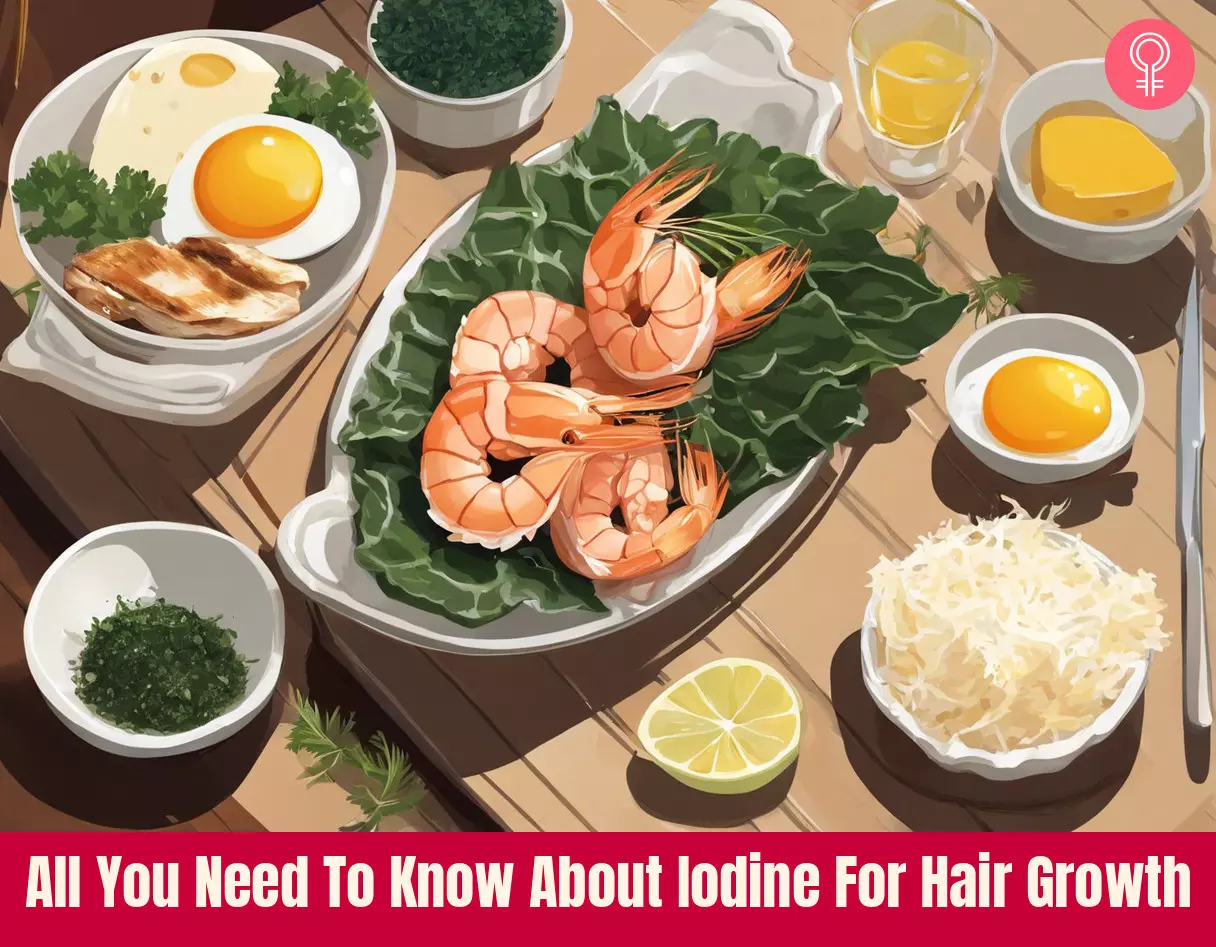
Image: Stable Diffusion/StyleCraze Design Team
References
Articles on StyleCraze are backed by verified information from peer-reviewed and academic research papers, reputed organizations, research institutions, and medical associations to ensure accuracy and relevance. Read our editorial policy to learn more.
- Thyroid hormone signaling controls hair follicle stem cell function
https://www.ncbi.nlm.nih.gov/pmc/articles/PMC4454174/ - Telogen Effluvium
https://www.ncbi.nlm.nih.gov/books/NBK430848/ - Female Pattern Hair Loss: A Retrospective Study in a Tertiary Referral Center
https://www.ncbi.nlm.nih.gov/pmc/articles/PMC4989388/ - Antiseptics and Disinfectants: Activity, Action, and Resistance
https://www.ncbi.nlm.nih.gov/pmc/articles/PMC88911/ - Dermatologic manifestations of endocrine disorders
https://www.ncbi.nlm.nih.gov/pmc/articles/PMC5682371/ - Successful human scar regeneration by topical iodine: a case report: an interim (3.5 year) summary
https://pubmed.ncbi.nlm.nih.gov/19168293/ - Iron Deficiency
https://www.sciencedirect.com/topics/agricultural-and-biological-sciences/iodine-deficiency - Evaluation of Qualitative Dietary Protocol (Diet4Hashi) Application in Dietary Counseling in Hashimoto Thyroiditis: Study Protocol of a Randomized Controlled Trial
https://www.ncbi.nlm.nih.gov/pmc/articles/PMC6926951/ - Iodine in food- and dietary supplement–composition databases
https://www.ncbi.nlm.nih.gov/pmc/articles/PMC5004500/ - Hypolipidemic effect of garlic and thyroid function
https://pubmed.ncbi.nlm.nih.gov/6517887/ - Iodine in dairy milk: Sources, concentrations and importance to human health
https://pubmed.ncbi.nlm.nih.gov/29221567/ - Risks and benefits of consuming edible seaweeds
https://www.ncbi.nlm.nih.gov/pmc/articles/PMC6551690/ - Iodine
https://ods.od.nih.gov/factsheets/Iodine-HealthProfessional/
Read full bio of Dr. Sravya Tipirneni
Read full bio of Sindhu Koganti
Read full bio of Ravi Teja Tadimalla
Read full bio of Aparna Mallampalli





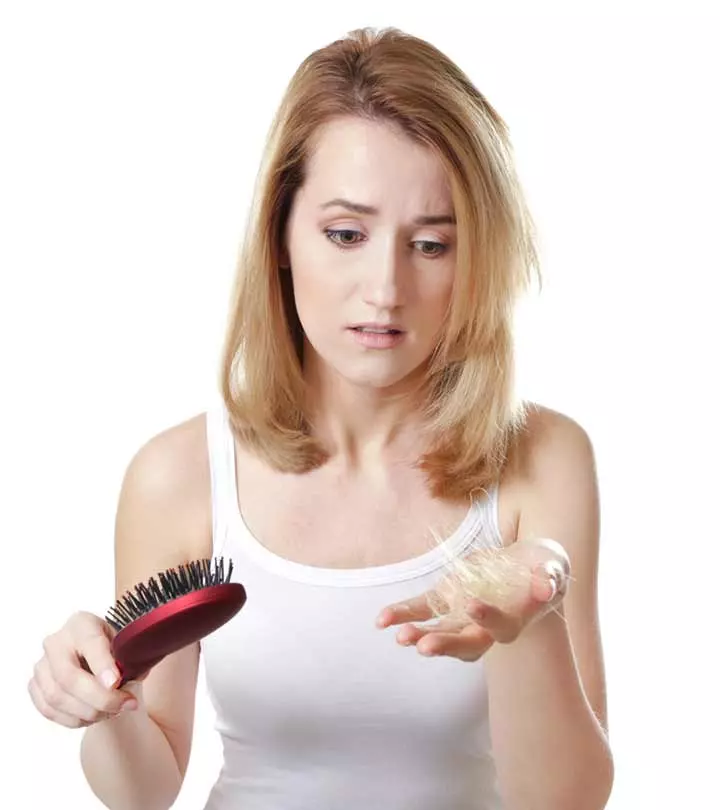

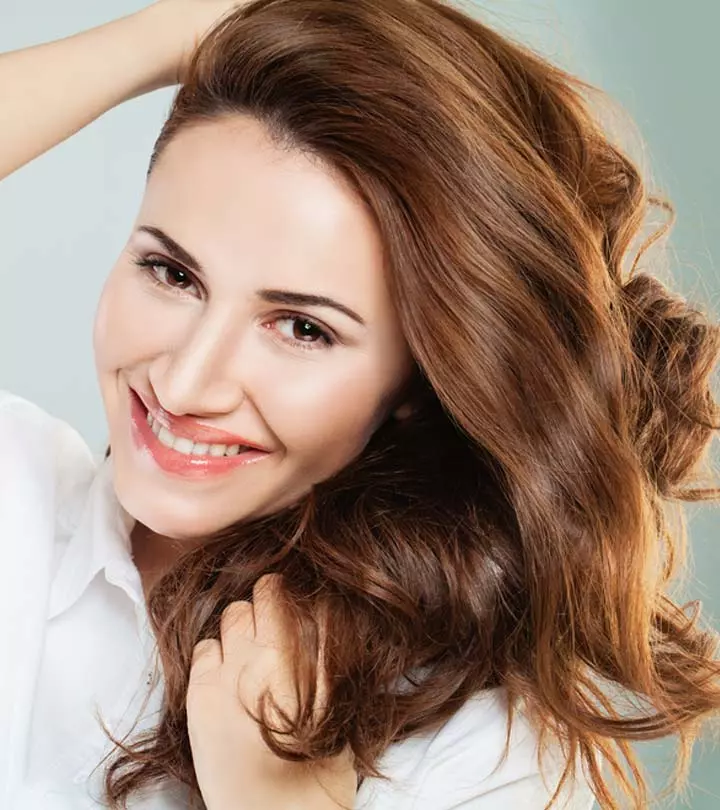
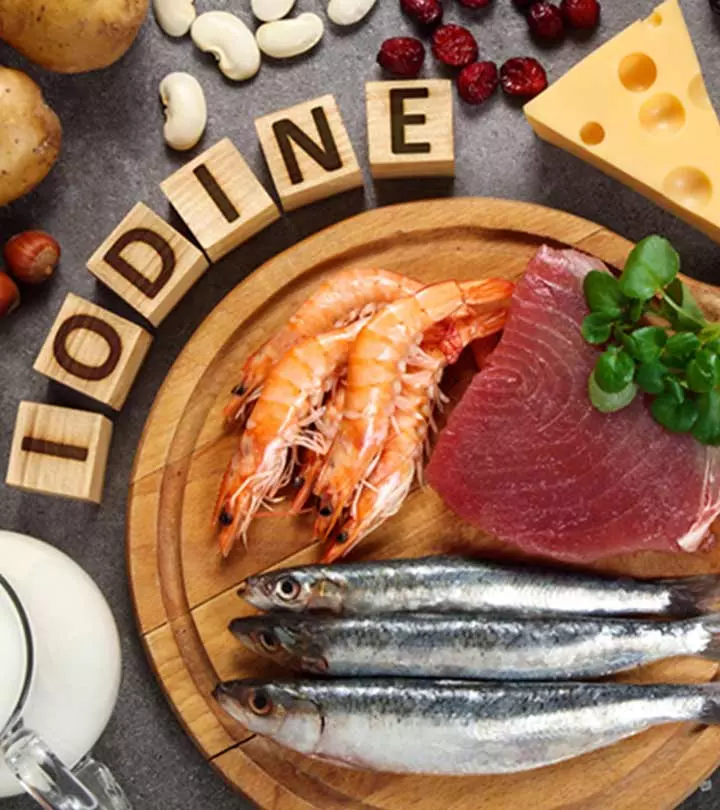
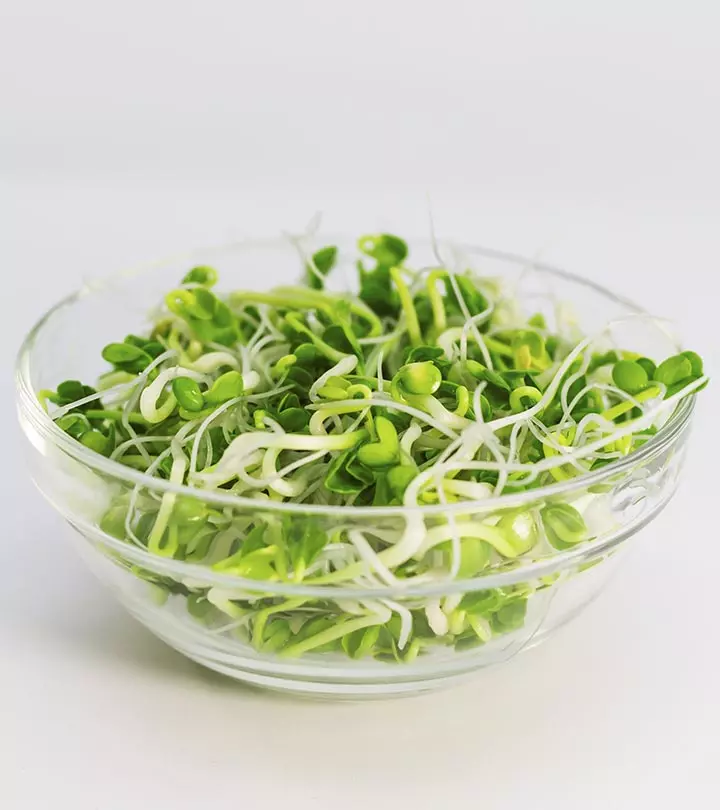
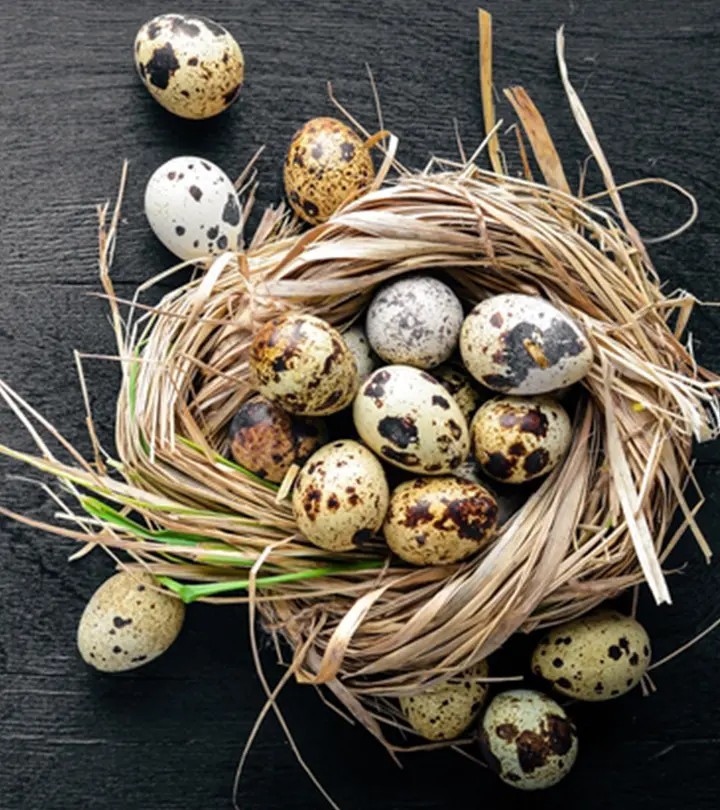

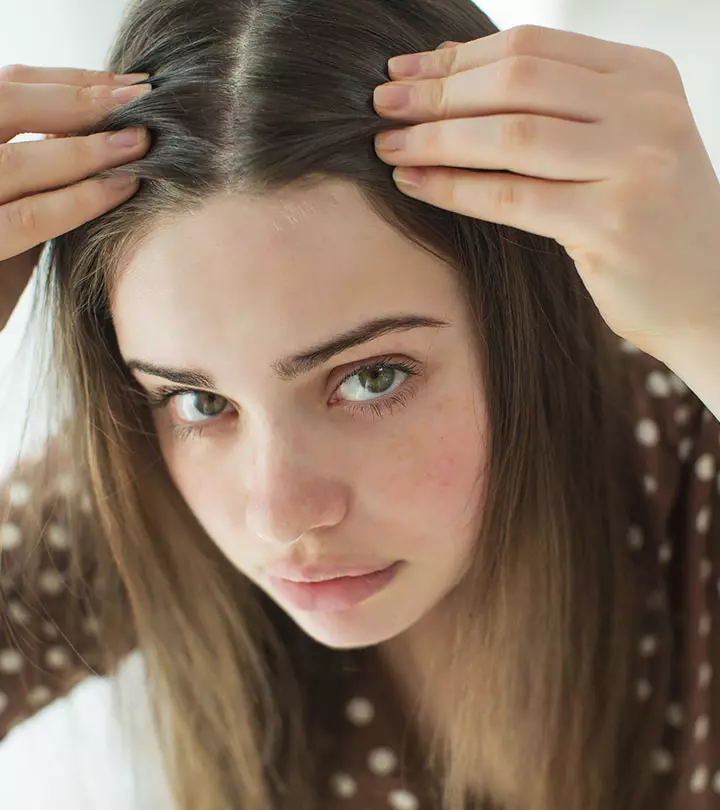




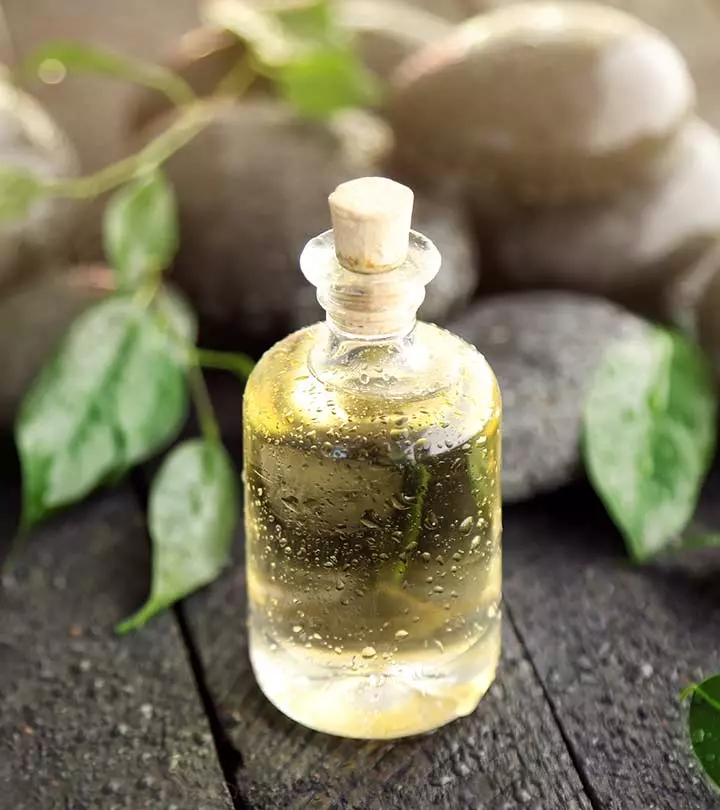
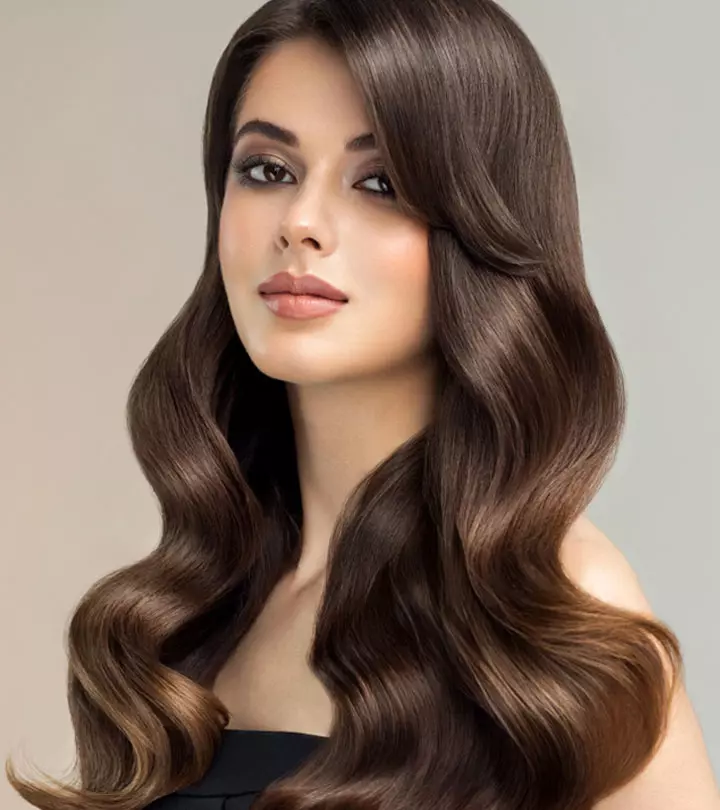
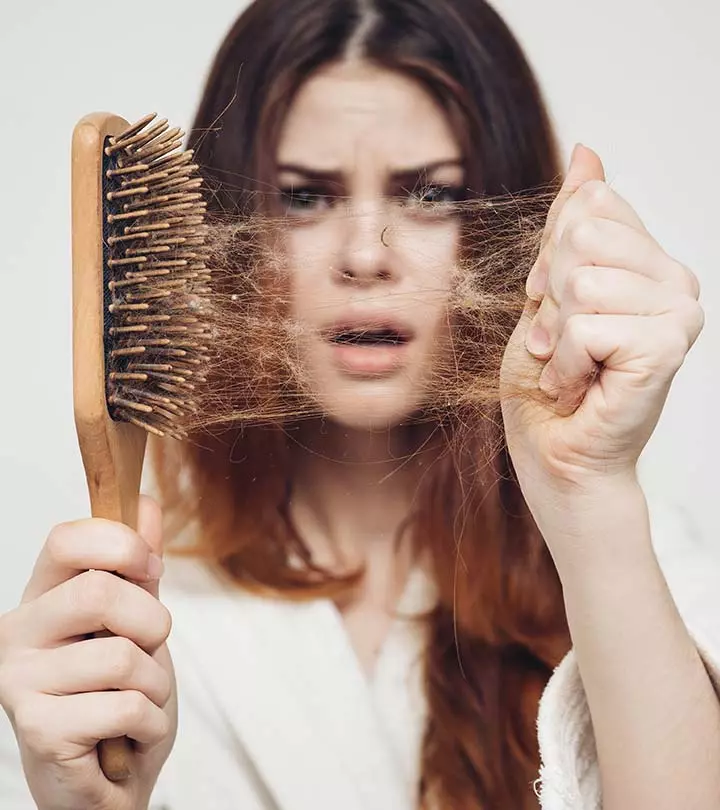
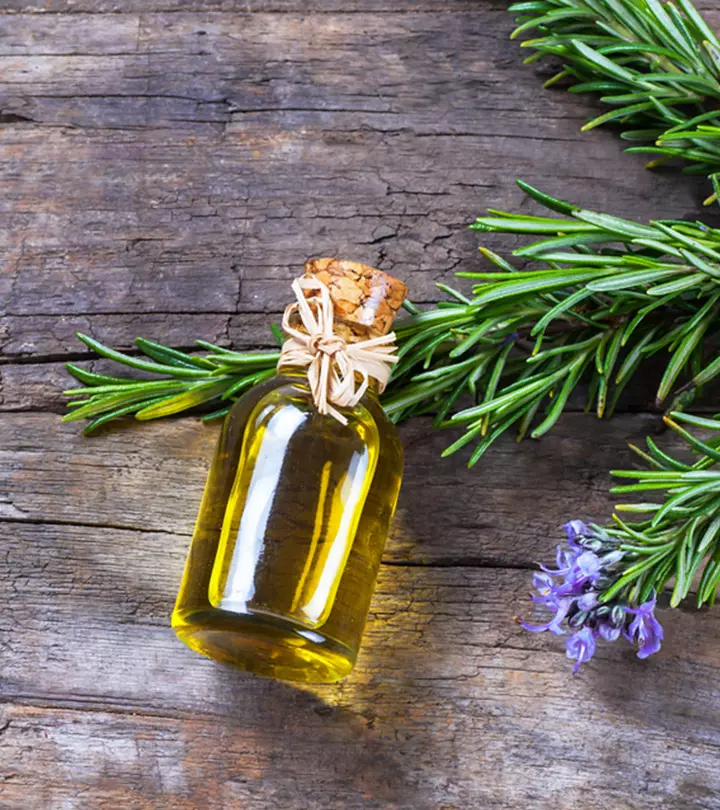
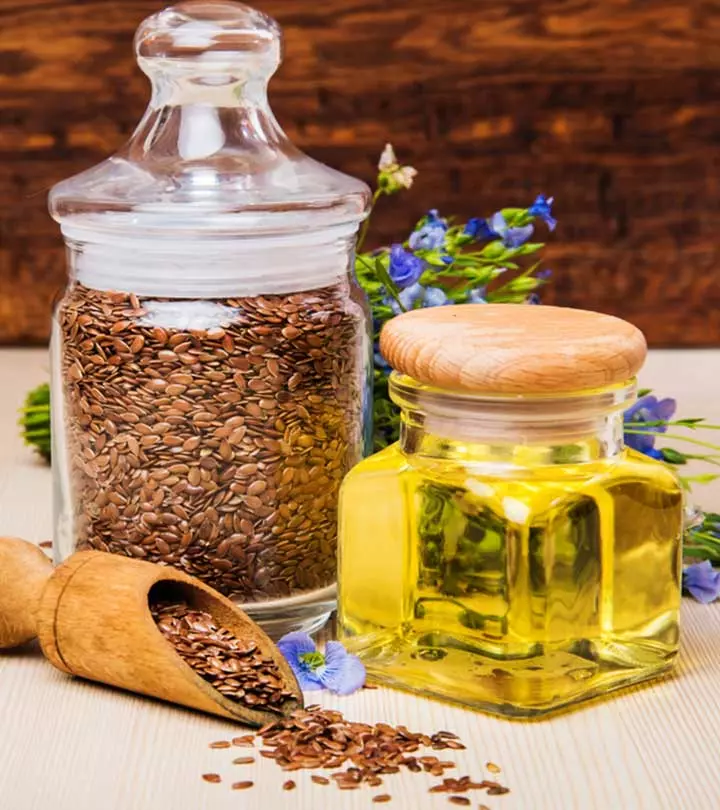
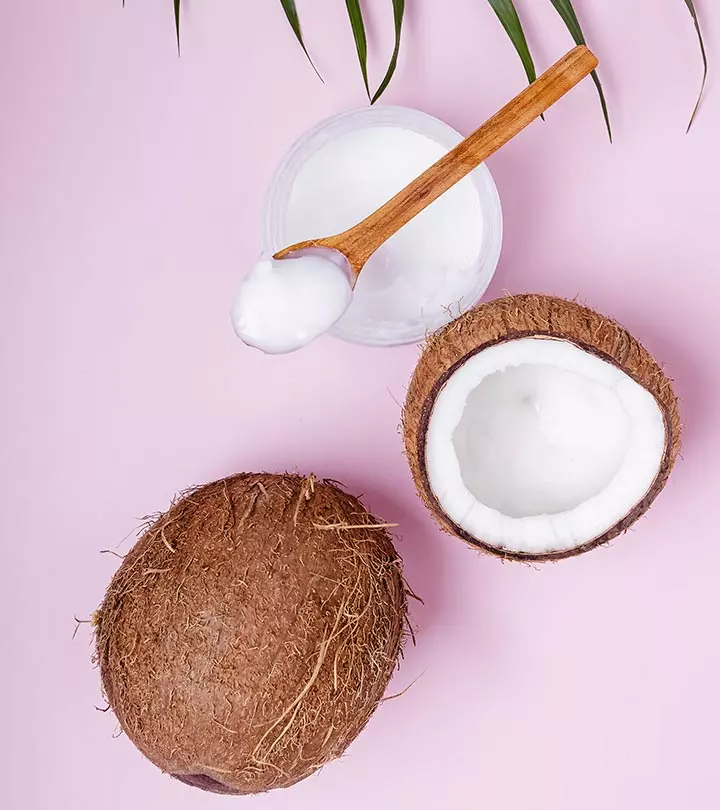
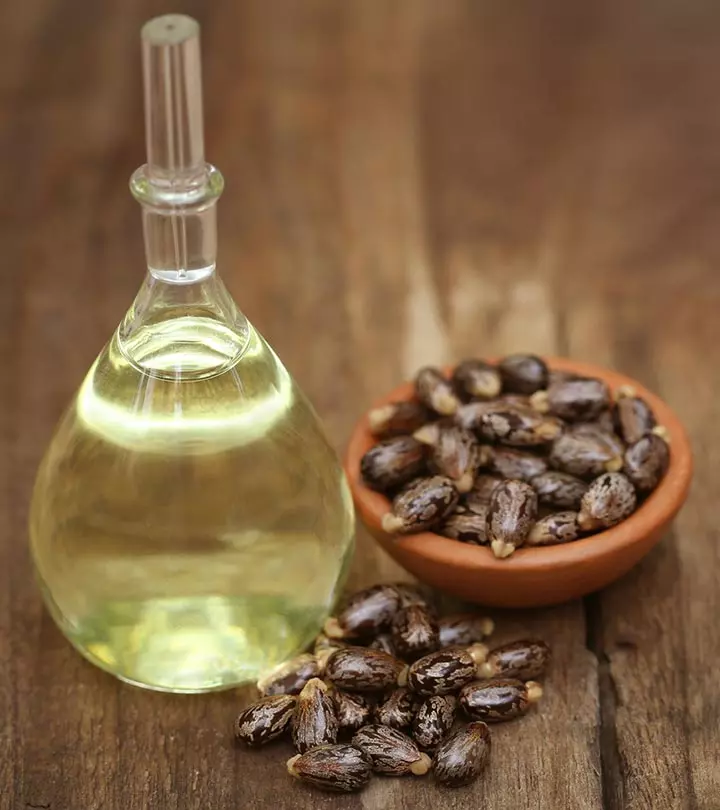

Community Experiences
Join the conversation and become a part of our empowering community! Share your stories, experiences, and insights to connect with other beauty, lifestyle, and health enthusiasts.